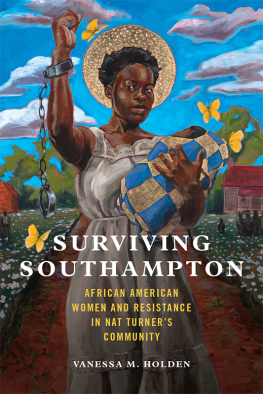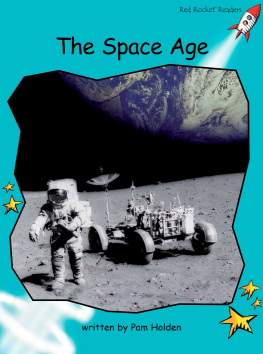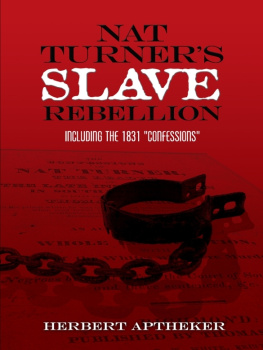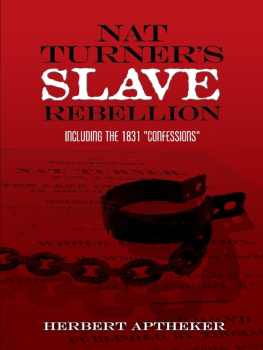Vanessa M. Holden - Surviving Southampton: African American Women and Resistance in Nat Turners Community
Here you can read online Vanessa M. Holden - Surviving Southampton: African American Women and Resistance in Nat Turners Community full text of the book (entire story) in english for free. Download pdf and epub, get meaning, cover and reviews about this ebook. year: 2021, publisher: University of Illinois Press, genre: Politics. Description of the work, (preface) as well as reviews are available. Best literature library LitArk.com created for fans of good reading and offers a wide selection of genres:
Romance novel
Science fiction
Adventure
Detective
Science
History
Home and family
Prose
Art
Politics
Computer
Non-fiction
Religion
Business
Children
Humor
Choose a favorite category and find really read worthwhile books. Enjoy immersion in the world of imagination, feel the emotions of the characters or learn something new for yourself, make an fascinating discovery.
- Book:Surviving Southampton: African American Women and Resistance in Nat Turners Community
- Author:
- Publisher:University of Illinois Press
- Genre:
- Year:2021
- Rating:3 / 5
- Favourites:Add to favourites
- Your mark:
Surviving Southampton: African American Women and Resistance in Nat Turners Community: summary, description and annotation
We offer to read an annotation, description, summary or preface (depends on what the author of the book "Surviving Southampton: African American Women and Resistance in Nat Turners Community" wrote himself). If you haven't found the necessary information about the book — write in the comments, we will try to find it.
The 1831 Southampton Rebellion led by Nat Turner involved an entire community. Vanessa M. Holden rediscovers the women and children, free and enslaved, who lived in Southampton County before, during, and after the revolt. Mapping the regions multilayered human geography, Holden draws a fuller picture of the inhabitants, revealing not only their interactions with physical locations but also their social relationships in space and time. Her analysis recasts the Southampton Rebellion as one event that reveals the continuum of practices that sustained resistance and survival among local Black people. Holden follows how African Americans continued those practices through the rebellions immediate aftermath and into the future, showing how Black women and communities raised children who remembered and heeded the lessons absorbed during the calamitous events of 1831.
A bold challenge to traditional accounts, Surviving Southampton sheds new light on the places and people surrounding Americas most famous rebellion against slavery.
|CoverTitleCopyrightContentsAcknowledgmentsAuthors Note on Language and SourcesPrologueIntroduction: An Intimate Rebellion1. Geographies of Surveillance and Control2. Enslaved Women and Strategies of Evasion and Resistance3. Free Issues: Free People of Color in Antebellum Southampton County4. Generation, Resistance, and Survival: African American Children and the Southampton Rebellion5. Surviving Southampton: Geographies of SurvivalConclusionNotesIndexBack cover|
Surviving Southampton insists that womens voices be heard, heeded, and remembered in understanding and commemorating the Southampton Rebellion and provides a model for revisiting slave revolts and other moments of rupture. Black Perspectives
Vanessa Holden successfully moves our attention from Nat Turner to his community at a time when the appeal for uncovering societies of resistance has never been more apparent. Civil War Monitor
With intricate research and deft analysis, Vanessa M. Holden presents a bold new exploration into Nat Turners Southampton Rebellion of 1831 and the imperative roles women and children played in the ongoing fight for Black survival. Ms.
|Vanessa M. Holden is an assistant professor of history at the University of Kentucky.
Vanessa M. Holden: author's other books
Who wrote Surviving Southampton: African American Women and Resistance in Nat Turners Community? Find out the surname, the name of the author of the book and a list of all author's works by series.











